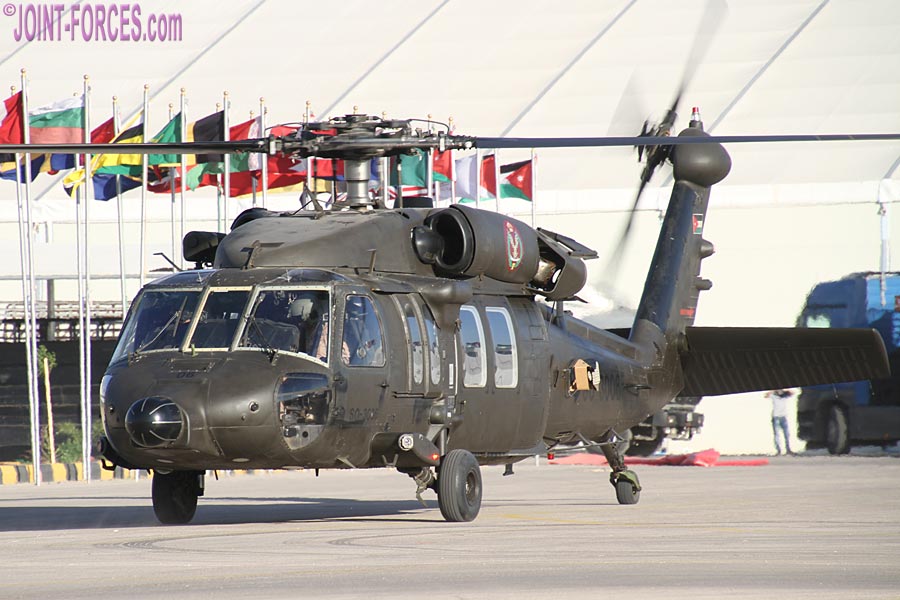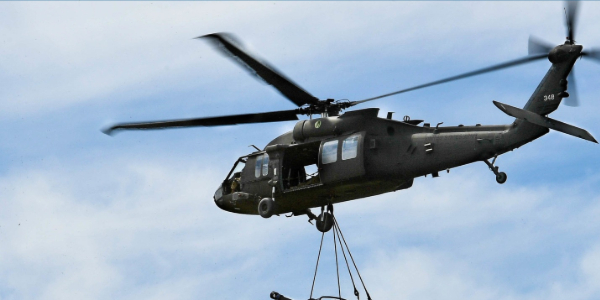UH 60 Black Hawk: Armed Forces Helicopter Attributes and Capabilities
UH 60 Black Hawk: Armed Forces Helicopter Attributes and Capabilities
Blog Article
The Function of Aircraft in Forming International Transport and Trade Dynamics
The evolution of aircraft has actually indelibly changed worldwide transport and trade characteristics, promoting extraordinary degrees of connection and performance. Through the establishment of durable air freight networks, companies can now navigate worldwide markets with amazing speed and agility, thereby redefining supply chain strategies. This makeover is not without its difficulties, as the aeronautics market grapples with sustainability concerns and governing pressures. As we explore the complex effects of airplane on worldwide trade, it is necessary to think about exactly how these elements will form the future landscape of air travel and its duty in the economy.

Evolution of Air Transportation
The evolution of air transportation has actually been noted by substantial technological developments and advancements that have actually transformed the method individuals and items relocate across the world. From the Wright bros' very first powered trip in 1903 to the growth of supersonic jets, each landmark has actually underscored the relentless pursuit of efficiency and rate in air travel.
The last part of the 20th century saw the introduction of industrial aviation as a viable mode of transport, characterized by the introduction of jet engines, which revolutionized flight by considerably minimizing trip times. In addition, technologies in navigating and interaction innovations have actually boosted operational effectiveness and safety, enabling more facility trip paths and routines. The surge of air freight in parallel with traveler services has actually better highlighted the adaptability of air travel. As we look to the future, emerging technologies such as electric and autonomous aircraft assurance to redefine the air transport landscape, guaranteeing continued advancement and adaptation to international needs.
Influence On Global Trade
Air transport has greatly reshaped global profession by promoting the swift motion of goods throughout large distances. This expedited logistics ability permits companies to react rapidly to market demands, consequently enhancing supply chain effectiveness. The capability to transport perishable products, high-value things, and time-sensitive products has actually opened up brand-new markets and opportunities for different sectors, considerably influencing trade patterns.
Additionally, the advancement of air freight networks has actually cultivated globalization, making it possible for firms to source materials and products from different components of the world effortlessly. This interconnectedness lowers preparations and prices, allowing organizations to remain affordable in a significantly global marketplace. Furthermore, air transportation plays an essential function in ecommerce, where customer expectations for rapid shipment have actually driven a rise popular for air cargo solutions.
The effect of airplane on international profession includes the production of calculated trade courses, connecting areas and assisting in global collaborations. Nations that purchase air transport infrastructure typically experience improved financial growth and enhanced foreign direct investment. In general, the development of air transportation has not just changed the logistics landscape yet has likewise become a vital element in the dynamics of worldwide trade.

Economic Advantages of Air Travel
A durable aviation market produces considerable financial benefits, contributing to work production, tourism, and total economic growth - uh 60. The aeronautics industry supports numerous tasks globally, ranging from straight employment in airline companies and airports to indirect functions in markets such as hospitality, transport, and logistics. According to market records, for every single work in the aeronautics industry, around 3.5 added jobs are created in the more comprehensive economy
Tourism is a pivotal element of the economic advantages originated from air travel. Flight facilitates worldwide tourism, permitting vacationers to check out varied locations, which in turn stimulates neighborhood economic climates. Countries that buy their aeronautics facilities usually experience boosted vacationer arrivals, bring about greater costs on solutions such as tourist attractions, hotels, and restaurants.

Additionally, air travel boosts worldwide connection, enabling businesses to access brand-new markets and resources successfully. As a result, fields such as ecommerce and manufacturing benefit immensely from trustworthy air transport, more driving economic development.
Challenges Encountering the Aviation Market
Navigating an intricate landscape of regulatory, ecological, and economic difficulties, the aeronautics industry deals with significant obstacles that threaten its sustainability and development. Regulations surrounding basics security and safety are consistently developing, demanding ongoing compliance and adjustment from airlines and producers (uh 60). This can result in boosted functional prices and resource allotment that interferes with development and growth efforts
Additionally, environmental worries have actually become critical, with expanding analysis over carbon exhausts and environmental pollution. The sector is under stress to take on greener modern technologies and techniques, which frequently need significant financial investment in r & d. Balancing these environmental responsibilities with the demand for flight offers a substantial obstacle.
Financial look at these guys variations, such as climbing gas rates and geopolitical unpredictabilities, better make complex the landscape. Airlines frequently grapple with volatile operating prices and varying passenger demand, which can influence earnings and lasting preparation. Labor lacks and skill gaps in critical areas add an additional layer of intricacy, impeding operational efficiency.
Ultimately, resolving these complex difficulties is important for the aviation industry to maintain its pivotal role in international transportation and profession, while making certain resilience and flexibility in an increasingly open market.
Future Patterns in Flight
Emerging modern technologies and shifting consumer preferences are positioned to reshape the future of air traveling dramatically. The combination of artificial knowledge and device knowing is expected to boost operational performance, improve airport terminal processes, and boost customer support. Anticipating analytics will promote much more exact demand projecting, allowing airlines to maximize flight schedules and prices designs.
Sustainability is becoming a crucial driver in flight, with the aviation sector increasingly concentrated on lowering carbon emissions. Developments in aircraft layout, such as electric and hybrid propulsion systems, are being explored to satisfy ecological targets. The fostering of lasting aeronautics fuels (SAFs) is anticipated to play an essential role in accomplishing net-zero emissions by 2050.
Consumer preferences are moving in the direction of individualized traveling experiences. Airline companies are buying advanced data analytics to customize services and enhance client involvement, making certain a more customized trip from visit here booking to arrival. Additionally, the rise of remote work may result in boosted need for recreation travel, as individuals seek to combine work and getaway.
Final Thought
Finally, aircraft substantially affect international transport and profession characteristics by assisting in fast motion and improving supply chain efficiency. The evolution of air transport has transformed global profession, generating considerable economic advantages while additionally offering difficulties that require strategic management. Future fads suggest a continued reliance on aeronautics for business, highlighting its essential role in globalization and economic development. The recurring adjustment of the aviation industry will certainly be crucial for maintaining its payments to the worldwide economy.
The last part of the 20th century saw the appearance of business aviation as a practical setting of transport, defined by the intro of jet engines, which reinvented air travel by drastically minimizing trip times. The rise of air cargo in parallel with traveler services has even more underscored the versatility of aeronautics. In addition, air transportation plays an essential duty in ecommerce, where customer assumptions for quick shipment have driven a rise in demand for air products services.
In general, the development of air transport has not only transformed the logistics landscape yet has also end up being an essential part in the characteristics of global profession.
Sustainability is coming to be a vital driver in air travel, with the aviation industry significantly concentrated on decreasing carbon discharges.
Report this page